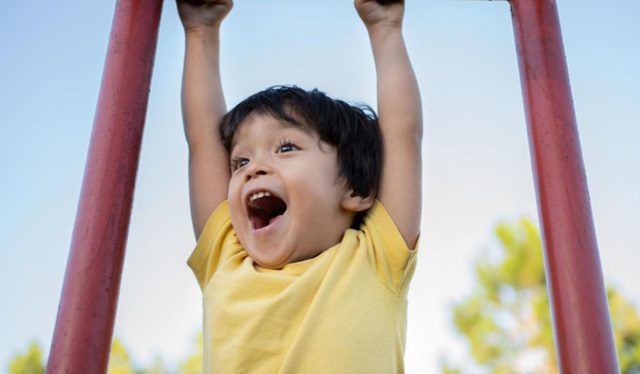BTN News: Mouth breathing during childhood, particularly during sleep, can have significant consequences on cognitive development and academic performance if not addressed early and properly, as highlighted by experts from the Hospital Universitario Reina Sofía (HURS) and the educational initiative Copa COVAP. While mouth breathing might seem like a benign issue, research has shown that it can affect a child’s health and well-being in profound ways. Up to 20% of children without underlying health conditions exhibit mouth breathing, which can stem from a variety of factors, such as chronic nasal congestion, structural issues in the oral cavity, or low muscle tone. This condition can negatively impact sleep quality, brain oxygenation, and overall cognitive function, making it crucial for parents and educators to understand its implications and take preventive measures.
According to a study conducted by the Federal University of Minas Gerais in Brazil, about one in five children without any underlying health problems may develop mouth breathing. The causes range from temporary issues like a cold or nasal congestion to more persistent problems like oral or dental structural abnormalities or low muscle tone. Regardless of the cause, the result is often the same—children are forced to breathe through their mouths, particularly during sleep, leading to poorer sleep quality and duration. This, in turn, has a direct impact on their ability to perform well in school, sports, and other cognitive tasks.
Furthermore, experts have warned that mouth breathing may hinder brain oxygenation by compromising the efficiency of respiration, which is essential for proper brain function. A study by Gachon University in South Korea highlights that nasal breathing ensures a steady and adequate supply of oxygen to the brain, crucial for its optimal functioning. In contrast, mouth breathing disrupts this oxygen supply, potentially leading to cognitive impairments and long-term brain health issues. When children breathe through their mouths, particularly during sleep, it can lead to a range of health problems, including headaches, hearing loss, and a general sense of malaise. Over time, if these issues are not addressed, they can develop into more severe conditions, such as pneumonia or other infections, as accumulated secretions may travel to the lower respiratory tract.
The significance of promoting healthy respiratory habits from an early age cannot be overstated. Parents play a vital role in encouraging nasal breathing and maintaining clear airways, which is crucial for overall health. Establishing good routines at home, such as ensuring proper hydration, following a balanced diet, and minimizing screen time, can significantly contribute to better respiratory health. Encouraging outdoor physical activities also helps in strengthening the respiratory muscles, which is essential for maintaining healthy breathing patterns.
In addition to these home-based strategies, respiratory physiotherapy can play a crucial role in managing respiratory conditions and promoting overall respiratory health in children. This specialized therapy helps in mobilizing and eliminating secretions, strengthening respiratory muscles, and improving lung expansion and posture. Techniques used in respiratory physiotherapy are designed to modify inspiration and expiration volumes, ultimately enhancing the respiratory function in children.
Preventive measures become particularly important as children return to school, where they are more likely to catch colds or other infections that can exacerbate mouth breathing. Simple habits such as maintaining good hand hygiene, ventilating classrooms properly, covering the mouth while coughing (preferably with the elbow or a tissue rather than the hand), and using disposable tissues can help reduce the spread of infections and minimize the risk of respiratory issues.
The HURS and Copa COVAP emphasize the importance of early intervention and education in promoting nasal breathing among children. Teaching children about the benefits of nasal breathing through games and activities can help them develop a better awareness of their breathing habits. Parents should also ensure that their children get adequate sleep, maintain a clean nasal passage through regular nasal washes or the use of saline solutions, and engage in physical activities that promote good respiratory health.
In summary, mouth breathing in children is not a trivial issue and should be taken seriously by both parents and educators. Its impact on cognitive function, academic performance, and overall health can be profound. By fostering healthy respiratory habits early on and seeking appropriate medical interventions when necessary, parents can help their children breathe better, sleep better, and ultimately perform better in all aspects of their lives.


